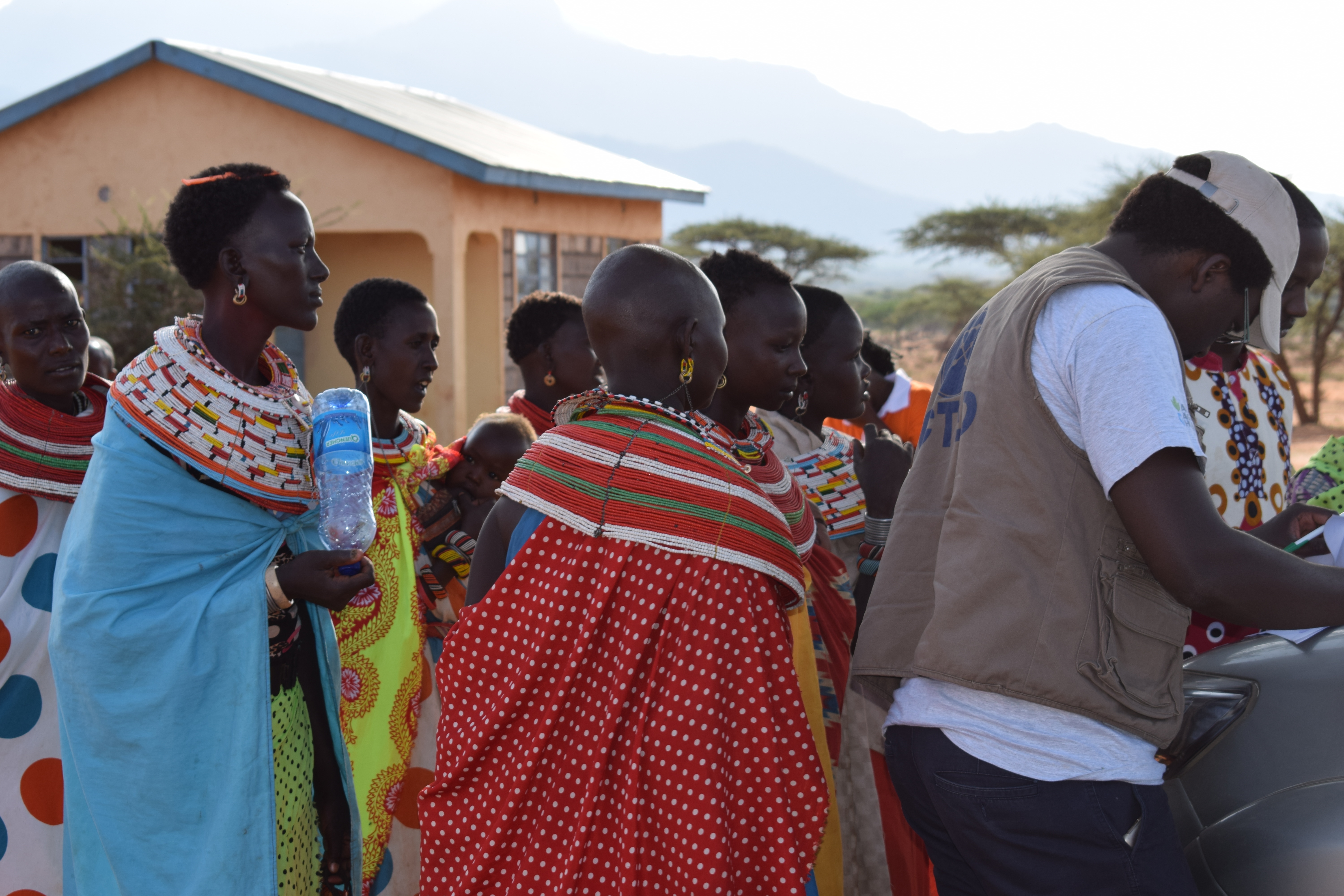Below average rainfall across the Horn of Africa caused drought conditions across the whole region, and particularly in north and north-eastern pastoral zones of Kenya. The delayed onset of the long-rain season has led to deterioration of farmland, loss of livestock, and increased food insecurity. In early June, Kenya entered into the already dry “lean-season” and humanitarian needs were anticipated to escalate significantly beyond typical seasonal variation.
As households in certain areas had already been judged to have entered IPC Phase 3 (Acute Food and Livelihood Crisis), the prioritisation of these areas was held to be particularly urgent. The Start Fund was alerted to the crisis on 4th June, after which the Start Fund committee agreed that the very strong information provided by agencies active in Kenya demonstrated the appropriateness of the Start Fund to respond. In less than 72 hours funding was awarded to ACTED, Action Aid, and Oxfam, all of whom have good geographical coverage of the areas most at risk .
In this case study produced by ACTED, we hear the story of Damaris, a mother of six enduring the devastating effects of the drought.
"A strong cross wind uproots the orange dust of the road in front, forming small, short-lived tornadoes of colour which accompany us for a few steps before returning to the ground. Towering Acacia trees, always a few feet taller than local Giraffes would like, bake in the sun. We are on our way to Lengei, a village in Samburu County, where we will meet Damaris, a mother of six. Damaris is a beneficiary of a recent ACTED project (funded by the Start Fund) which puts money straight into the hands of community members, allowing them to instantly meet their most pressing needs while boosting the local economy and reducing the danger of aid vehicles flooding areas with goods in which they are already available.
Devastating droughts affect populations of the arid and semi-arid lands of Kenya
The poor rains during the last rainy season in Kenya severely endangered the livelihoods of the population, particularly in the arid and semi-arid lands. Most of the local communities have a traditional agropastoral lifestyle. While they rely on their livestock for survival, they now struggle to find water and grazing land for their animals.
The lack of rain has had a devastating impact on soil; 20 to 30% of plantations have failed, weakening food reserves and livestock, and increasing the risk of disease. Livestock farmers are desperate to find grazing areas for their animals. Access to water is considerably compromised, and basic goods are becoming increasingly unavailable and unaffordable.
Today, arid and semi-arid lands represent 89% of the Kenyan territory. Baringo, Mandera and Samburu counties are among the most affected by the ongoing drought. Acute malnutrition affects two million people who require immediate support. Samburu East, where Damaris and her family live, is among the worst affected sub-counties due to the ongoing dry season. Most of the families need immediate support to cope with the deteriorating food security situation.
Damaris welcomes us to her beautifully thatched hut, laced with a black poly-ethene sheet and fenced with thorny acacia branches to keep wild cats and other predators away from her small brood of chicken. Noting the scorching sun outside, Damaris says how her livestock, mainly sheep and goats, have migrated to Samburu Central in search of pasture due to the prevailing dry spell.
“As you can see, my animals have moved… There are only women and children around.”
A rapid response to crucial needs through cash transfers
With a longstanding presence in the country and in the arid and semi-arid areas, ACTED was able to respond quickly to support drought-affected families. The organisation was able to provide 3,000 households with cash, thanks to the support of the Start Fund.
As the conversation shifts to the ongoing project, Damaris intimates that she received cash on two occasions to meet her basic needs. For example, out of the first transfer, she was able to settle her water bill at the local community borehole, as the community pays between KES 2 (approx. 0,2 USD) per jerrycan of water collected. She was also able to clear a debt of KES. 900 (approximately 8,5 USD) to her local shop. Damaris gave the remaining money to a local shop as a down payment of food for the next two weeks. All cash is transferred via a mobile phone service to minimize the risk of theft in transport.
While emergency interventions can meet immediate needs, recurrent droughts weaken agropastoral populations from year to year. The urgency for action remains greater than ever in the Horn of Africa and the Sahel region.
Read more about the Start Fund.

